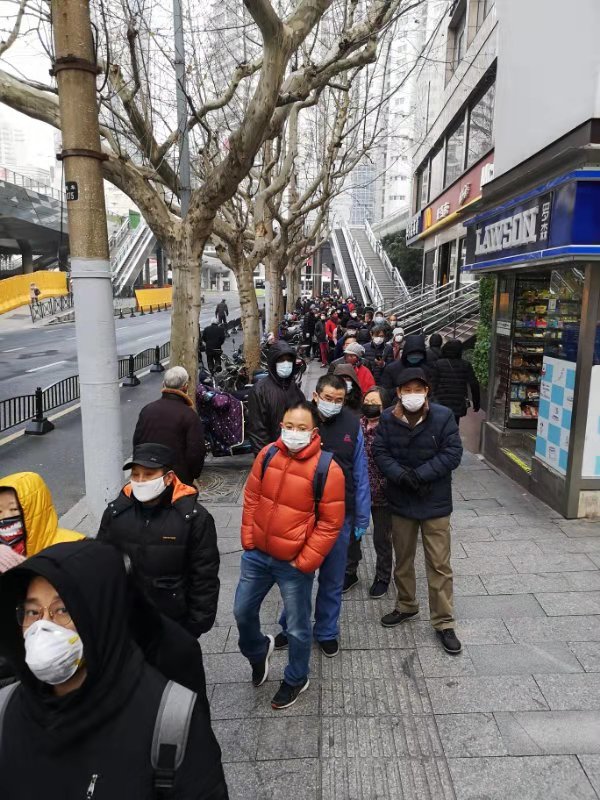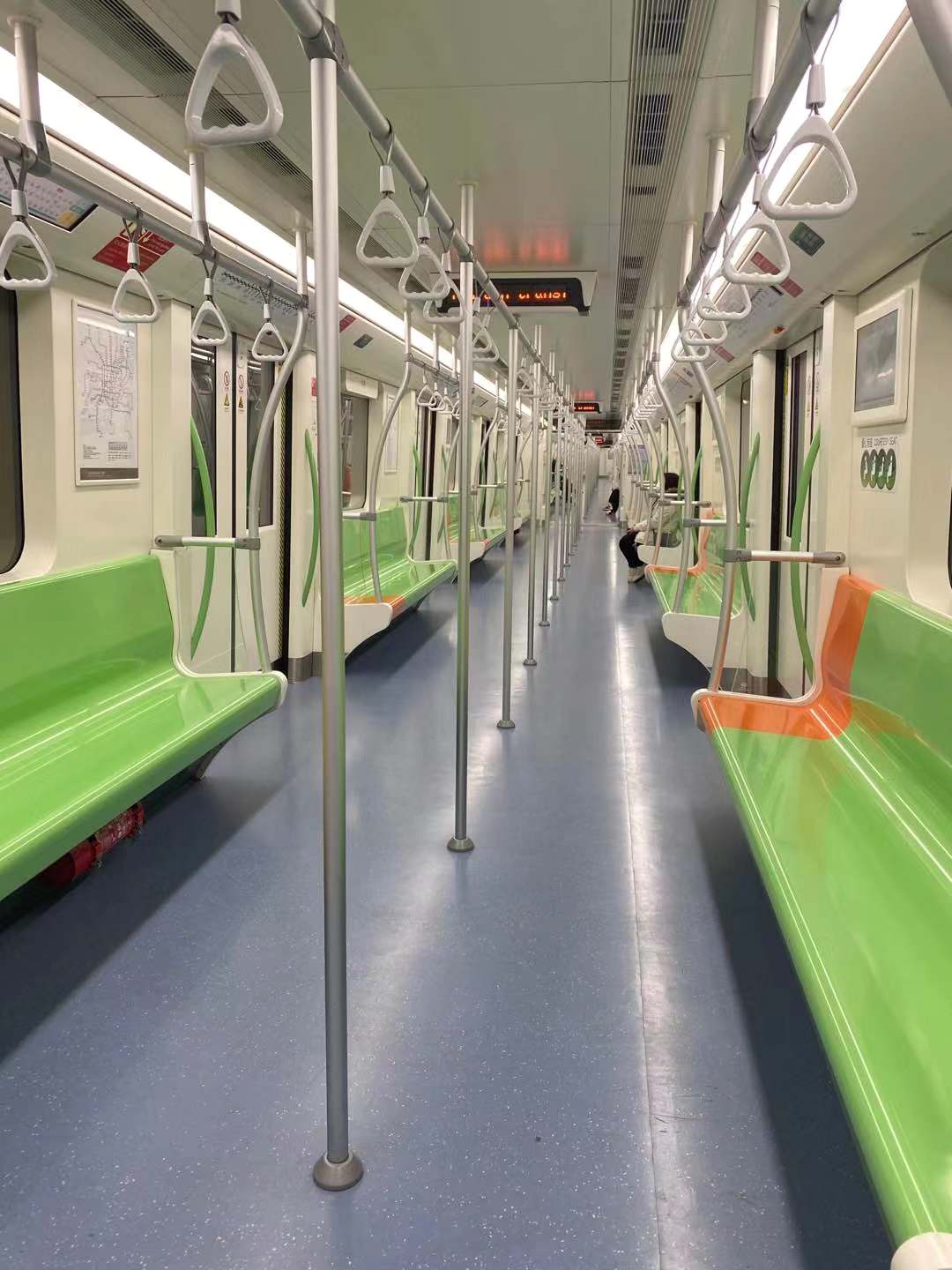Strangers in China: Living through the coronavirus epidemic in China

In Shanghai, people line up to by face masks; photo by Josh Ogden-Davis
I never like to think about disease. For the latest episode of my Strangers in China podcast I talked to more than 20 people representing five provinces of China and five countries, and I think out of all of them, I am the most frightened about the coronavirus.
On January 26, two days into Chinese New Year, I came to the realization that the novel coronavirus was a force of nature that everyone living in China had to reckon with; there was no avoiding the news reports, as I had for the previous week or two.
Producing this podcast has been both a personal and collective journey toward a better understanding of disease and acceptance. I reached out to friends, acquaintances, and a few kind strangers, asking them to share their experiences, and this is the wisdom they provided.
I think for many people in China during this public health crisis, their feelings are marked by deep contradictions.
Unsurprisingly, people that I’ve talked to are worried. David, from the U.S., and Yashu, from Hunan Province, are staying with Yashu’s family in Loudi. Since they’re cooped up at home like the rest of us, they are feeling the constant anxiety that comes from reading the news. They describe how reading one particular report will be completely anxiety-inducing, confirming their deepest fears, then a few moments later, they’ll feel complete relief while reading what confirms their sense of hope.
Of the people I interviewed, one common feeling is boredom. Even before we were all told to stay in our homes, all of the normally cheerful holiday events for the New Year had to be cancelled. Lily, at home in Suzhou, told me that her hometown’s temple celebrations for the new year were shut down. Her family’s massive seven-table New Year’s feast was cancelled at the last minute as well. She felt the joyous Spring Festival Gala on TV didn’t at all match the mood around her household.
But it’s not all gloom and doom. Boredom and creativity go hand in hand. Josh, from the U.S., described the internet humor he’s encountered in WeChat groups. He’s been collecting memes: the best one going around is one featuring Carrie Lam that reads: “Last year she had to convince everyone to take their masks off, this year she has to get them to put them back on.”
People oscillate between deep feelings of isolation and a renewed sense of community. Peng, living in Shanghai, describes alienation. Even though the number of cases and suspected cases are going up, the disease feels so distant. He believes society is not psychologically prepared to handle a situation of this magnitude. He finds it hard to empathize with what some are going through — particularly as his grandmother is in the hospital with terminal cancer. His family had to bribe doctors to allow her to stay in the hospital in the wake of the virus, and it’s a daily struggle with hospital staff to let them see her.
On the other hand, Shunyao, who’s from Shanghai but is currently in the U.S., describes how she and other medical professionals are gathering resources to send to Wuhan doctors. She’s deeply disheartened by the government’s many failures in responding to the virus, but is amazed at how individuals, even those quarantined at home, are using their prowess in logistics to help coordinate rides for doctors in Wuhan. In her view, the Chinese people have never been so united, both in fighting the disease and fighting apathy.

The response to the coronavirus is constantly being compared to its predecessor, the 2003 SARS outbreak. All the people I talked to agreed that the government completely bungled the response to SARS, with some outright condemning the government for its coverup and prolonged silence. By comparison, everyone agreed that the response to this virus has been much better. Maggie, from Jiangsu, is encouraged by the proactive measures the government has taken and is surprised by the candor in response to this disease. I think her general outlook represents the majority of the responses that I got. Most people feel the government is handling this well.
Alex, from the UK and living in Beijing, describes how most of his Chinese friends are deeply distrustful of the government’s figures on the disease. People he’s talked to feel that they’ve been lied to for so long that they can’t trust the government, even if experts at the World Health Organization and Centers for Disease Control have backed up the figures that the Chinese Communist Party has produced.
Shunyao, who is a medical professional, thinks the government has both bungled the response and maliciously covered up the initial outbreak. She’s been studying the evidence closely, and it seems that there was not only a delayed response with inaccurate reporting, but an initial cover-up of the disease. She describes how the media, in its early reports, used medical jargon out of context to downplay the severity of the disease. She also brings up the group of Wuhan doctors who were initially silenced by the police when they expressed concerns in late December of a virus that had similarities to SARS. One of those doctors, Li Wenliang, recently died of the coronavirus; he was only 34 years old.
When it comes to the response, there is one thing that absolutely everyone agreed on: the people are doing an amazing job. The heroic efforts of those on the front lines, the people donating resources and time, and everyday people are all sources of hope and pride.
The ultimate takeaway from talking to these thoughtful people was that everyone is remarkably unfazed. Media reports on Twitter and abroad paint this picture of panic, and I think in some instances there has been some, but overall, everyone is calm and hopeful. My sample size is small, but I get the sense that people are taking this in stride and doing their best, whatever the circumstances.





